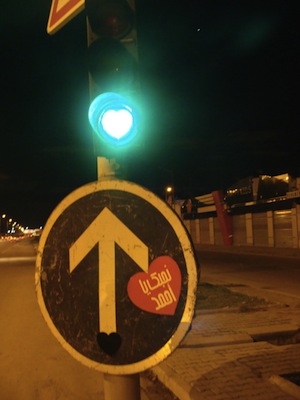Death of a Tunisian dating site


One year ago the odds appeared to be in the favour of Zouz, a Tunisian online dating site. In 2009, the entrepreneur left his position as senior market analyst for a research and media company in the U.S. and returned to Tunisia to launch, with four friends, an online dating service for Tunisians.
They raised $1 million USD and convinced 100,000 users – that’s 5% of the Tunisian internet population – to sign up. Yet today, the site no longer exists. What went wrong? Bilel Bouraoui, the co-founder, looks back on the failure and shares some entrepreneurship mistakes.
Recognizing the fact that Tunisians don’t see online dating as something to be taken seriously, or that this is a service they wouldn’t normally pay for, Bouraoui and his friends set up a series of features to showcase the sincerity of the site and to prove the need for subscription fees.
Challenges
Despite the quality of the service they simply couldn’t generate enough income. “It still makes me feel a bit bad,” says Bouraoui. “But for me, it is a dead service.”
What’s to blame? According to Bouraoui, it's user conversion and acquisition costs that were much higher than originally planned.
In a bid to make improvements the team stepped up their online and TV ads, as well their particularly striking guerrilla marketing, an example of which was heart-shaped traffic lights. But these gimmicks didn’t come cheap; they had to rely solely on the $1 million USD previously raised from a venture capital investment company.
Once they got users on board, they had to explain how the site worked, which is a challenge for every company bringing a service no one has used before, but which has made harder by some features the company created to ensure the quality of the dating.
For example, to address the fear of harassment or attacks, the team began creating features to help eliminate this worry. One was to limit questions to only those formulated by the team, in the hope of easing concerns people had regarding inappropriate behavior. Helping the users understand how the service worked, was a cost the team hadn't plan.

The dark side of fundraising
Raising money not only allowed the company to operate longer than they ever thought possible, it also allowed them to engage in mass marketing, but he warns entrepreneurs of the new challenges that appear when you get funding. “We raised a lot of money and spent a lot... it wasn’t a good idea,” he says.
Bouraoui now firmly believes that startups’ value comes from their capacity to innovate under pressure. “[Raising money] leads to bad reflexes. It distracts one from the real priorities which are to know the market well and to manage the funds right,” he says.
The blame doesn't just lie with the team, though. Investors and mentors (or the lack thereof) also share some culpability in the demise of Zouz. Bouraoui blames the lack of education amongst investors who trusted him with a large amount of money when he wasn’t ready. “Looking back, I realize that I wasn’t ready at all,” he says. “They trusted me as a person and a professional, but they should not have trusted me as a web entrepreneur, because I was not.”
He also felt the investors lacked knowledge of startups and couldn't play their role of mentors.. “What I lacked was mentors who know what they are talking about, and who can help prioritize things, not investors who just know how to manage funds.”
Bouraoui's tips
Bouraoui initially had one piece of advice for young Tunisian entrepreneurs: “Find mentors, choose them well. It all boils down to this.”
However, he did come up with a few other pointers:
1. Think big. Don’t limit yourself, be open. When you take a lot of risks and you have an innovative product, you should choose a market big enough to compensate for the risks. Bouraoui nows sees that he should have considered to whole MENA region, not just Tunisia. “It is not good to limit oneself, be more open.”
2. Break the cycle of mediocrity. For Bouraoui a mediocre environment was prevailing in Tunisia. “The entrepreneurs job is to break these vicious cycles. A country can be changed by one entrepreneur.” Bouraoui suggested going to France to gain experience; going with an idea that will attract international profiles; relying on diaspora; using the services of international freelancers. (although this advice should be taken with a grain of salt: check out our pros and cons of offshore outsourcing).
A new dating service
Despite his failure Bouraoui is undaunted and has just launched the beta version of his new project fair.ly. The dating app helps users meet by providing them with each other's details and stories. By launching searches based on a semantic search (of words and information used) on users' social network accounts, the app can derive information about their occupations and tastes, facilitating first interactions.
Initially the app will be launched aiming at an American audience and will find funding through bootstrapping.

